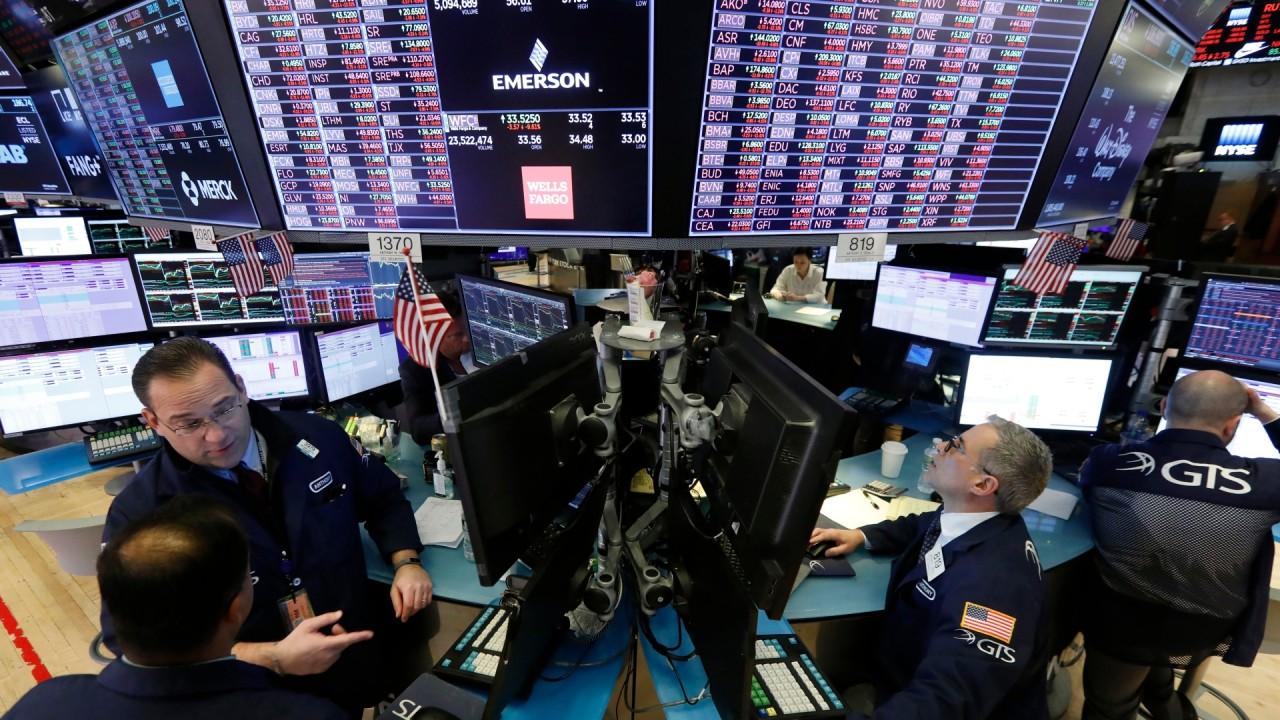Dow plummets, trading halts amid oil, coronavirus fears -- Don't panic, investors. Here's what you need to do
Investors with a longer time horizon may actually benefit from the current stock market declines
We don’t know whether coronavirus will become a full-blown pandemic in the United States, just like we don’t know whether the stock market will go up or down in the next few days or weeks. For instance, investors on the morning of Monday, March 9 woke up to blaring headlines of an oil-price war, and temporary halts to trading on American stock markets due to volatile price declines.
But here’s what you should keep in mind: Over the long term, both the American economy and the stock market have proven incredibly resilient in the face of challenges, from two world wars to 9/11 to the Great Recession.
DOW PLUNGES AS MUCH AS 2,000 POINTS, OIL CRASHES AS PRICE WAR ERUPTS AND CORONAVIRUS SPREADS
Over more than a century, the market has rewarded those investors who maintain this long-term perspective—and I have every reason to believe it will do so in the years to come.
In recent weeks, the coronavirus has captured the attention of financial markets around the world—with a vengeance.
But investors with a long time horizon should keep a sense of perspective amidst the chaos. Yes, the Dow suffered the worst one-day point loss in its history on February 27th—but in percentage point terms, that loss doesn’t even rank among the top 20 worst days in Wall Street history.
During the course of a single week, the Dow dropped more than 12%, from 28,992 at the close of business on Friday, February 21 to 25,409 at the close of business on Friday, February 28. But consider that at the beginning of February 2019, the Dow stood at just over 25,000. In other words, even after Wall Street’s worst week in over a decade, investors still ended up slightly better off than they were just over a year ago.
NYSE, WALL STREET FIRMS TEST FOR CORONAVIRUS PREPAREDNESS
And over the longer term, stocks have generated positive returns for investors. During the worst days of the 2008-2009 financial crisis and Great Recession, the Dow briefly dipped below 7,000 in March 2009.
In the eleven years since then, the market has more than tripled—even after last week’s major selloff. That’s the reason why the Dow’s record-breaking drop in total point terms doesn’t even register on the list of biggest percentage-point declines: Stocks have risen so high in recent years that even a 1,000 point loss won’t put a major dent in investors’ long-term gains.
So long-term investors should remain calm, even amidst the roiling markets. The coronavirus does represent a threat to business cycle, and could lead to an economic slowdown. Certain sectors, including the travel and tourism industry, or companies with supply chains focused in China, have already taken hits.
But the fundamentals for economic growth—low unemployment, low inflation, and rising wages—remain strong. The Federal Reserve has also pledged to monitor the situation, and act as needed to support the economy.
More importantly, investors in the market for the long term shouldn’t become over-excited by short-term headlines or the gyrations of the Dow. For instance, a 30-year-old with IRA or 401(k) holdings in the stock market shouldn’t worry about the plunging stock market one bit.
Even investors in, or approaching, retirement should beware the dangers of moving out of the stock market. Many individuals aged 60 or 65 will need income to last them for a retirement lasting 25 years or longer.
GET FOX BUSINESS ON THE GO BY CLICKING HERE
Exiting the market entirely could end up exposing these investors to more risks—they could run out of money at the end of their lives, particularly given currently low interest rates on savings—than riding out the present turmoil.
Investors with a longer time horizon may actually benefit from the current stock market declines. Young investors who “dollar-cost average” into the market—that is, they transfer the same $100 or $500 out of their paychecks into a 401(k) every month—can take advantage of this correction in the market by buying more shares of stock at a cheaper price. Because they have the longest investing horizon they can wait out the current fluctuations, and receive bigger returns over the long haul.
By contrast, individuals who pull their money out of the marketplace could end up losing out on big investment gains. Those people who cashed out their 401(k)s when the Dow Jones stood below 7,000 ended up missing out on one of the biggest, and longest, bull markets in history over the past decade-plus.
Bottom line: Remaining calm amidst panic requires discipline from long-term investors. But markets have historically rewarded those with the patience to wait out these short-term fluctuations, even if it’s hard to do amidst the market frenzy.
Chris Burns is the CEO of Dynamic Money and host of “The Chris Burns Show” on WSB Radio. Follow him on Twitter @CWBurns.






















